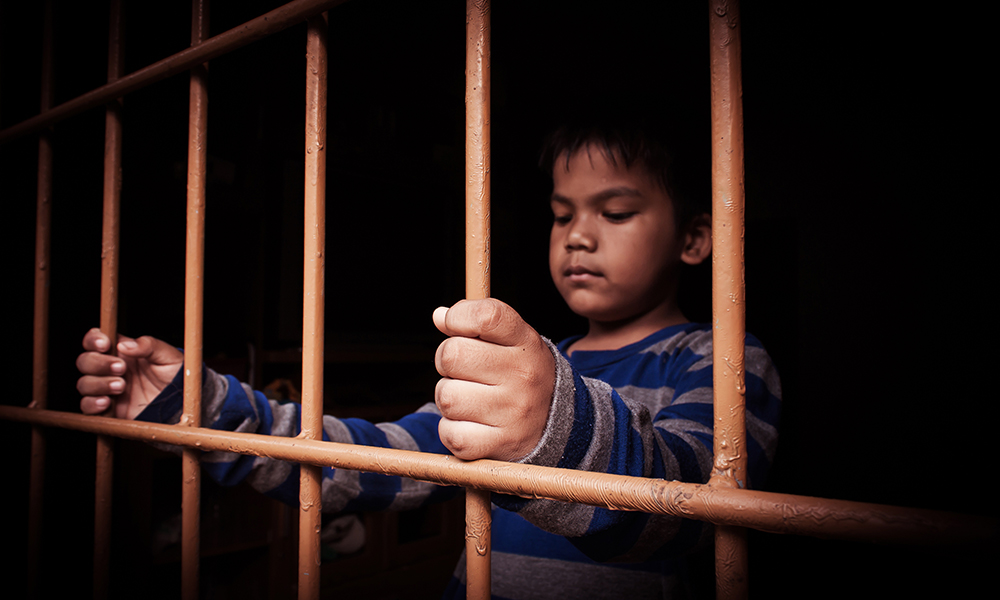In most U.S. states, children of any age can be processed through the juvenile justice system. This year, proposed legislation in California — a state with no established age minimum — seeks to bring needed protections to children ages 11 and younger by prohibiting their prosecution in juvenile court. If successful, Senate Bill 439 will lessen the harm of unnecessary justice system involvement by allowing young children to receive age-appropriate supports through alternative systems, including schools, community-based health providers and child welfare agencies.
 Juvenile justice systems were designed for older adolescents, not children. Subjecting the very young to formal processing undermines the effectiveness of treatment and increases the likelihood that they will return to the justice system. Research shows that justice system contact, particularly at an early age, can have harmful, lifelong impacts. Formal processing, regardless of outcome, can cement a negative self-image and hinder healthy development, increasing a child's likelihood of continued contact with the justice system.
Juvenile justice systems were designed for older adolescents, not children. Subjecting the very young to formal processing undermines the effectiveness of treatment and increases the likelihood that they will return to the justice system. Research shows that justice system contact, particularly at an early age, can have harmful, lifelong impacts. Formal processing, regardless of outcome, can cement a negative self-image and hinder healthy development, increasing a child's likelihood of continued contact with the justice system.
Many young children who come into conflict with the law are exhibiting normal, childlike behaviors that require no formal intervention. In rare cases, a child’s more serious behavior can be an indication of abuse, untreated trauma or other high-level needs. These needs are better addressed by mental health or child welfare professionals outside the walls of a courtroom or juvenile hall.
In recognition of the harms of early justice system involvement, the United Nations Convention on the Rights of the Child declared that signatory nations should set a minimum age of criminal responsibility of at least 12 years old, if not higher. Today, nearly every country in the world has adopted a minimum age of criminal responsibility, with some as high as age 16. In the United States, most states have no minimum age protections, and those that do have set standards that are well below the U.N. recommendation. The most common minimum age for juvenile court prosecution in the U.S. is 10 years old, though some states, including New York and Maryland, can prosecute children as young as 7 years old.
Most are misdemeanors
Most young-age arrests and referrals are for fairly minor offenses. In California, misdemeanor assault and battery, which can encompass schoolyard fights, is the most common offense referred for prosecution, followed by vandalism and running away. Though most cases are closed at intake or diverted, children who encounter the juvenile justice system, even briefly, can be saddled with the trauma and stigma of systems contact.
Fortunately, juvenile court involvement among young children is increasingly rare. In California, 804 children under age 12 were arrested in 2016 compared to 4,701 in 2006, and 652 under-12 offenses were referred for prosecution in 2016 compared to 2,655 10 years earlier. These declines mirror reductions in juvenile justice involvement across age bands. Between 1995 and 2015, juvenile arrests declined by 75 percent in California and 67 percent nationwide, making young people today the safest generation on record.
Now, at a time when children and youth experience less involvement with the juvenile justice system than their parents or grandparents, states across the U.S. must institute long-overdue protections. California lawmakers have the chance to lead the nation by setting, for the first time, a minimum age law that conforms to international human rights standards.
Only through the passage of groundbreaking minimum age legislation can states safeguard young children and allow them to receive needed supports and interventions outside the bounds of the justice system. The research is clear: Keeping young children out of the justice system is vital to their long-term wellbeing and to the safety of our communities.
Maureen Washburn is a member of the policy and communications team at the Center on Juvenile and Criminal Justice.
